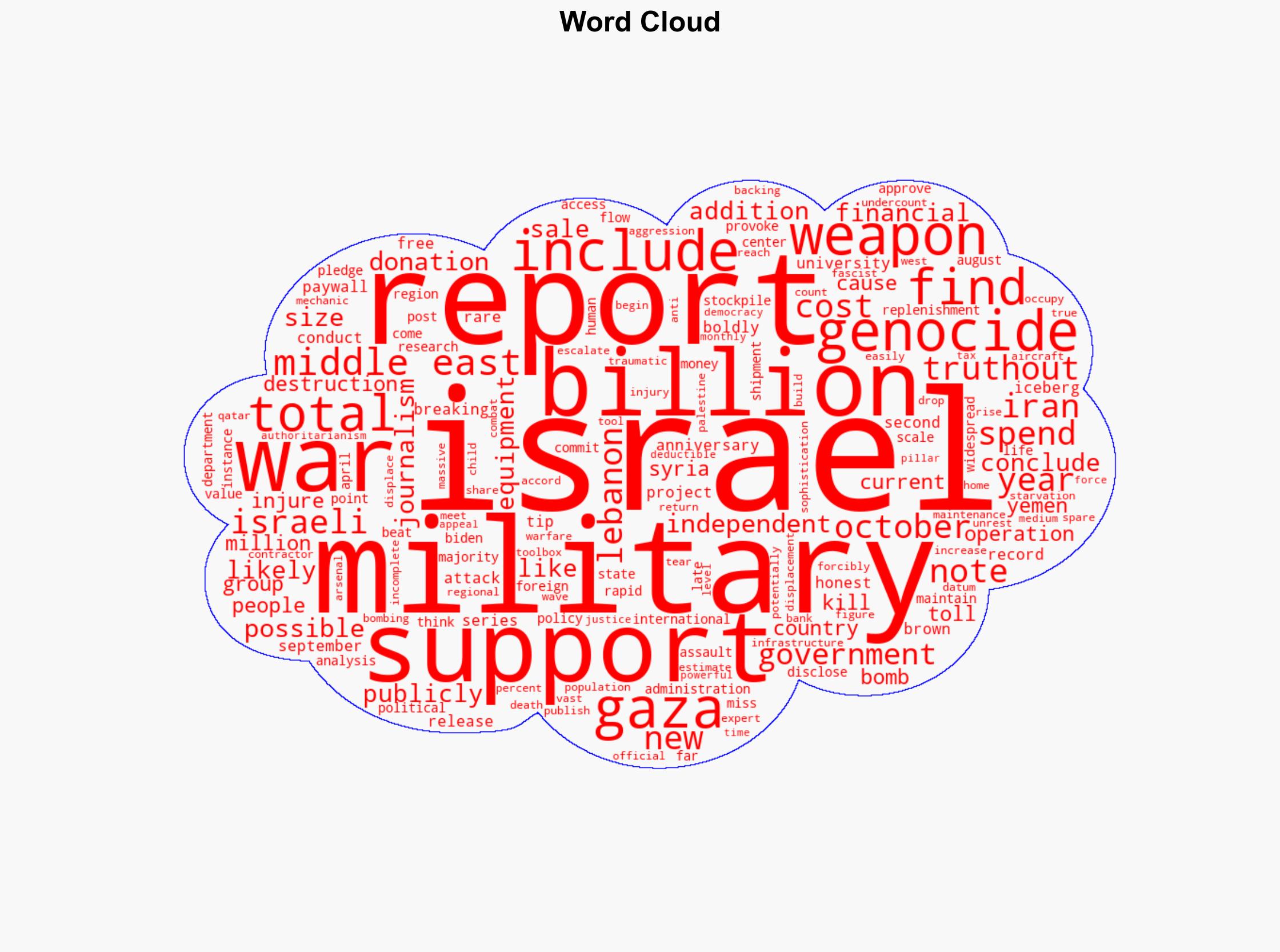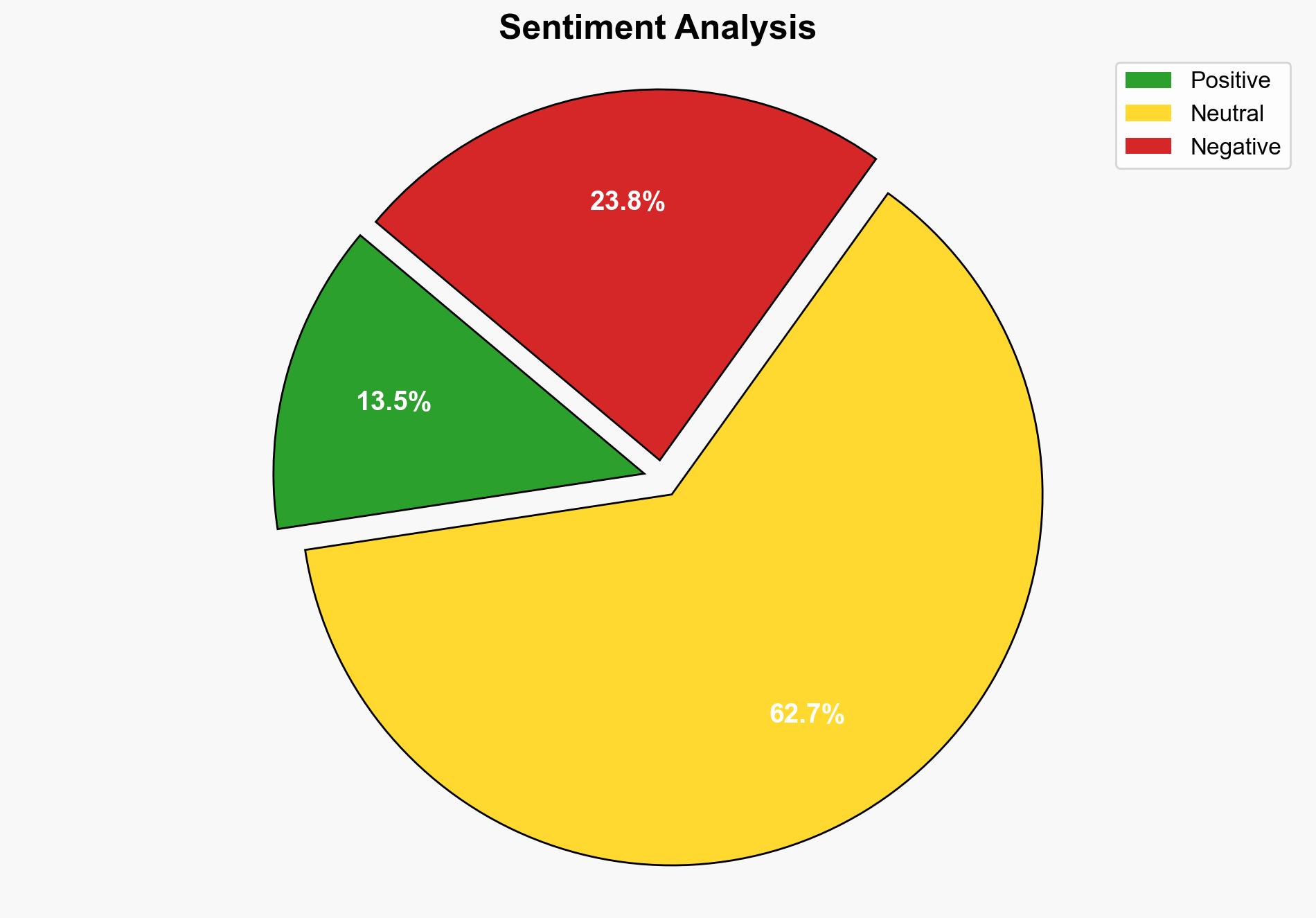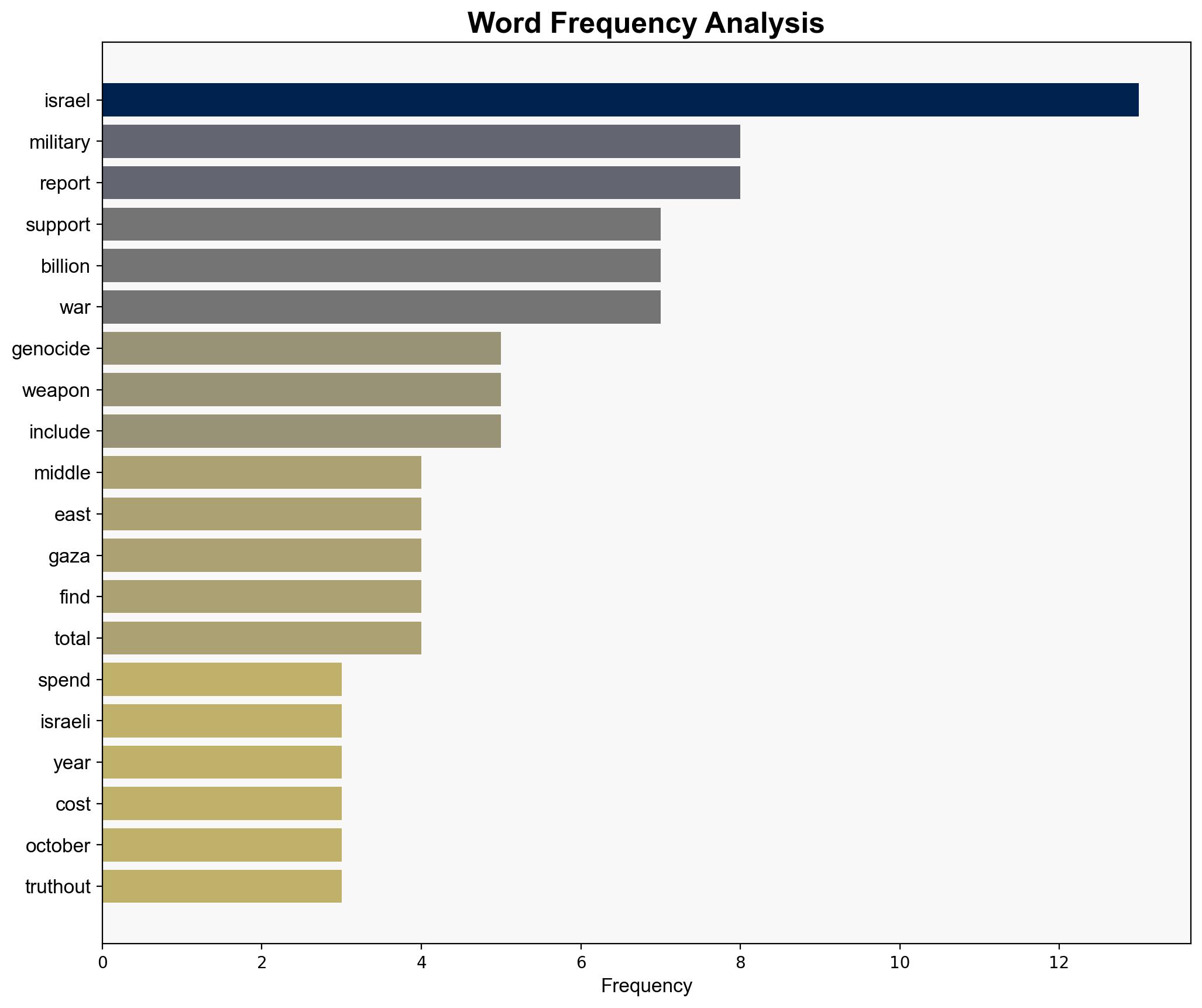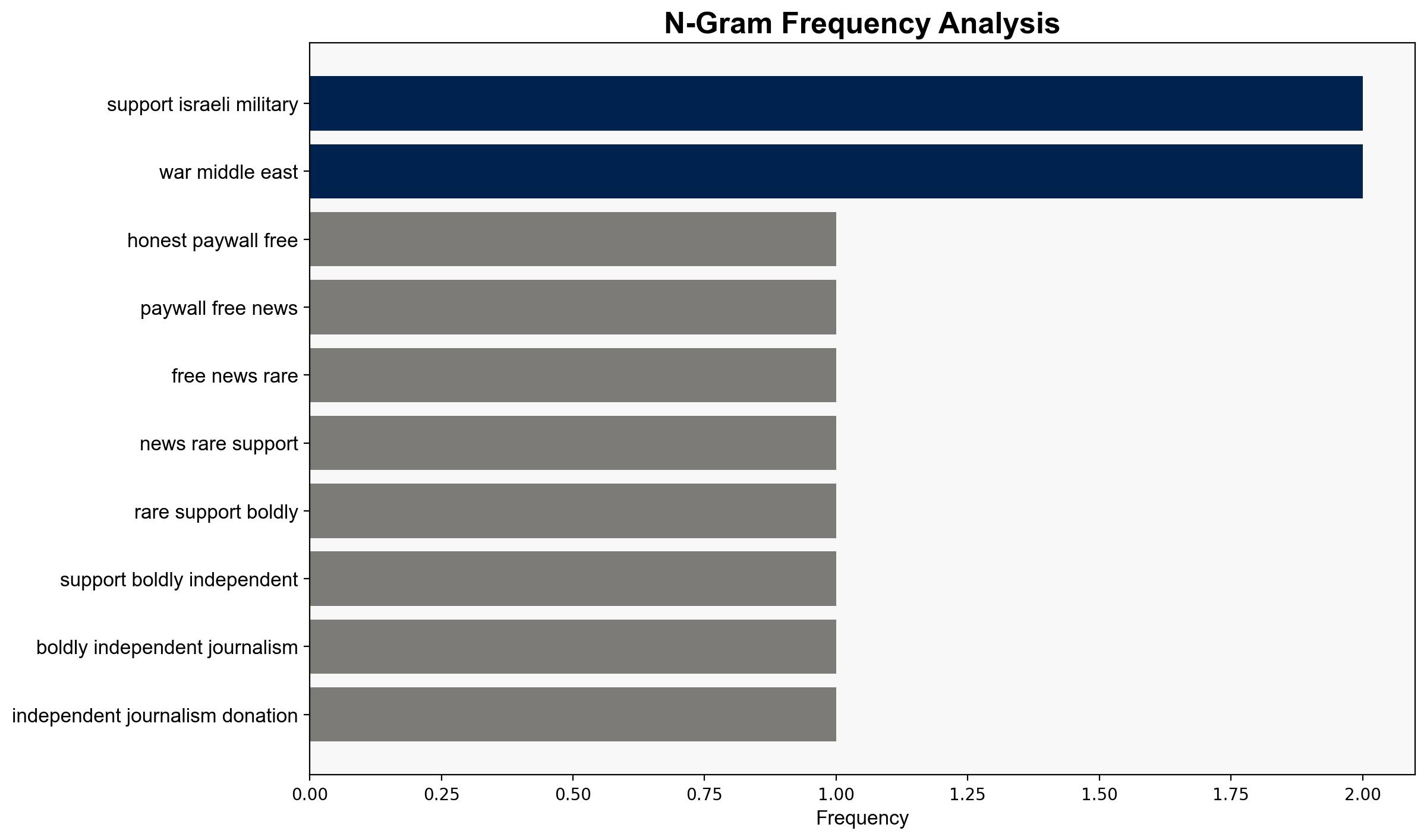Report US Spent Over 30B Backing Israel Regional Wars in 2 Years of Genocide – Truthout
Published on: 2025-10-07
Intelligence Report: Report US Spent Over 30B Backing Israel Regional Wars in 2 Years of Genocide – Truthout
1. BLUF (Bottom Line Up Front)
The analysis suggests that the U.S. financial support for Israel’s military operations in the Middle East is substantial and potentially contributing to regional instability. The most supported hypothesis is that this funding is part of a broader strategic alignment with Israel, aimed at countering regional adversaries. Confidence in this assessment is moderate, given the complexity and potential biases in the source data. Recommended action includes a reassessment of U.S. foreign aid policies in the region to ensure alignment with broader strategic objectives and humanitarian considerations.
2. Competing Hypotheses
1. **Strategic Alignment Hypothesis**: The U.S. financial support for Israel is primarily driven by a strategic alliance aimed at countering common regional adversaries such as Iran and maintaining a balance of power in the Middle East.
2. **Unintended Consequences Hypothesis**: The financial support, while intended to bolster a key ally, inadvertently exacerbates regional conflicts and humanitarian crises, leading to increased instability and anti-U.S. sentiment.
Using Bayesian Scenario Modeling, the Strategic Alignment Hypothesis is better supported due to historical precedents and consistent U.S. foreign policy objectives in the region. However, the Unintended Consequences Hypothesis cannot be dismissed, given the humanitarian impact and regional backlash.
3. Key Assumptions and Red Flags
– **Assumptions**: The U.S. views Israel as a critical ally in the Middle East. Financial aid is assumed to be a tool for maintaining regional stability.
– **Red Flags**: The report’s language suggests potential bias, with terms like “genocide” indicating a strong editorial stance. The lack of detailed, publicly disclosed financial data raises questions about transparency.
– **Blind Spots**: The report does not fully explore the geopolitical motivations behind U.S. support or alternative perspectives from other regional actors.
4. Implications and Strategic Risks
– **Geopolitical**: Continued U.S. support for Israel may strain relations with other Middle Eastern countries and could lead to increased regional polarization.
– **Economic**: Significant financial outlays may impact U.S. economic priorities and foreign aid allocations elsewhere.
– **Psychological**: Perceptions of U.S. complicity in regional conflicts could fuel anti-American sentiment and radicalization.
– **Potential Escalation**: Increased military capabilities for Israel might provoke retaliatory actions from adversaries, escalating regional tensions.
5. Recommendations and Outlook
- Conduct a comprehensive review of U.S. foreign aid to Israel, focusing on transparency and alignment with humanitarian goals.
- Engage in multilateral diplomacy to address regional conflicts and reduce tensions.
- Best Case: Strategic realignment leads to improved regional stability and stronger alliances.
- Worst Case: Continued support exacerbates conflicts, leading to broader regional war.
- Most Likely: Incremental adjustments in policy maintain status quo with periodic flare-ups.
6. Key Individuals and Entities
– **Joe Biden**: Mentioned in context of approving arms sales to Israel.
– **Brown University’s Cost of War Project**: Source of the report’s data.
7. Thematic Tags
national security threats, regional focus, foreign aid policy, Middle East stability





